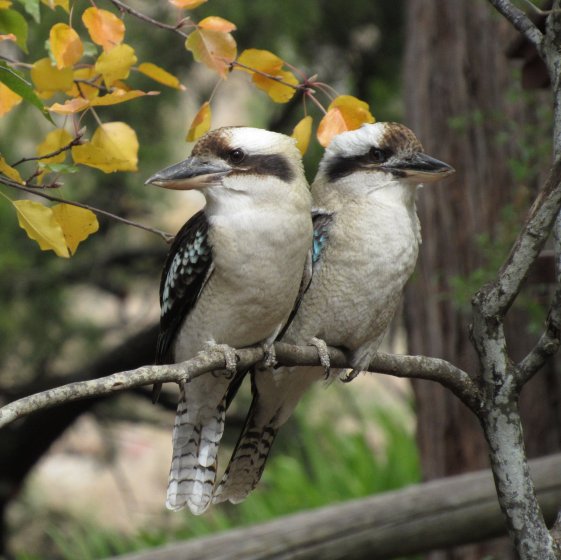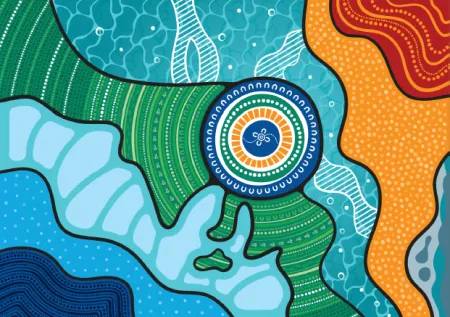Who We Engaged
The EPA sincerely thanks all people who have provided input and reviewed the information that is presented in this report.
Information was obtained via the commissioning of independent opinion papers by experts in specialised fields, accessing relevant websites including the Australia SOER 2021 and by utilising inhouse environmental knowledge. General stakeholder feedback highlighted the importance of reporting on the implementation of SOER recommendations, and the 2023 SOER reports on the South Australian Government and agency work that aligns with the recommendations made in the 2018 report.
Regional Visits
In the planning stages for the SOER, engagement with Landscape SA officers from around South Australia highlighted that the report needed to have more regional content, to add to the whole-of-state information. As part of the process to achieve this, engagement was carried out with a range of stakeholders around the state via a series of face-to-face workshops held in August and September 2022. Engagement with Aboriginal peoples was carried out via a more targeted separate process (see next section).
Face-to-face workshops were held in Kingscote, Port Augusta, Strathalbyn, Streaky Bay, Cleve, Port Lincoln, Clare, Adelaide, Naracoorte, Murray Bridge and Berri, and with Alinytjara Wilurara LSA staff (in Adelaide). The workshops were attended by 95 people representing 57 different organisations, including Landscape Boards (32 attendees across 9 regions), local government (31 attendees from 26 councils), Regional Development Australia, DEW, Murray–Darling Basin Authority (MDBA), and industry associations and non-government organisations. Many of the issues raised in these workshops were similar across the regions.
General comments included:
- lack of compliance and resources to manage land and coastal areas (including national parks and marine parks) particularly from impacts of tourism and recreational use, including 4WD and camping. Requires resources to manage (personnel, funding, infrastructure, policy)
- disparity between regional areas and Greater Adelaide in terms of resource allocation and policy development. At times, these processes do not recognise regional challenges such as distances, population and resources from rate payers, for example, circular economy, waste management
- identify incentives for the community to adopt better environmental practices (collaboration, kids’ education, awareness, economic, promotion, funding, accessibility, coordination)
- improve coordination of research, data collection, monitoring and reporting to address priority areas
- assistance with funding applications and better allocation of funding to encourage volunteering
- better engagement and promotion of outcomes with the SOER to inform priorities
- review environmental reporting and make it more relevant, accessible and priority driven.
Meetings were also undertaken with the chairs, general managers and officers from the regional Landscape Boards throughout the production of the SOER 2023. This was to facilitate inclusion of regional content and considerations for the SOER.
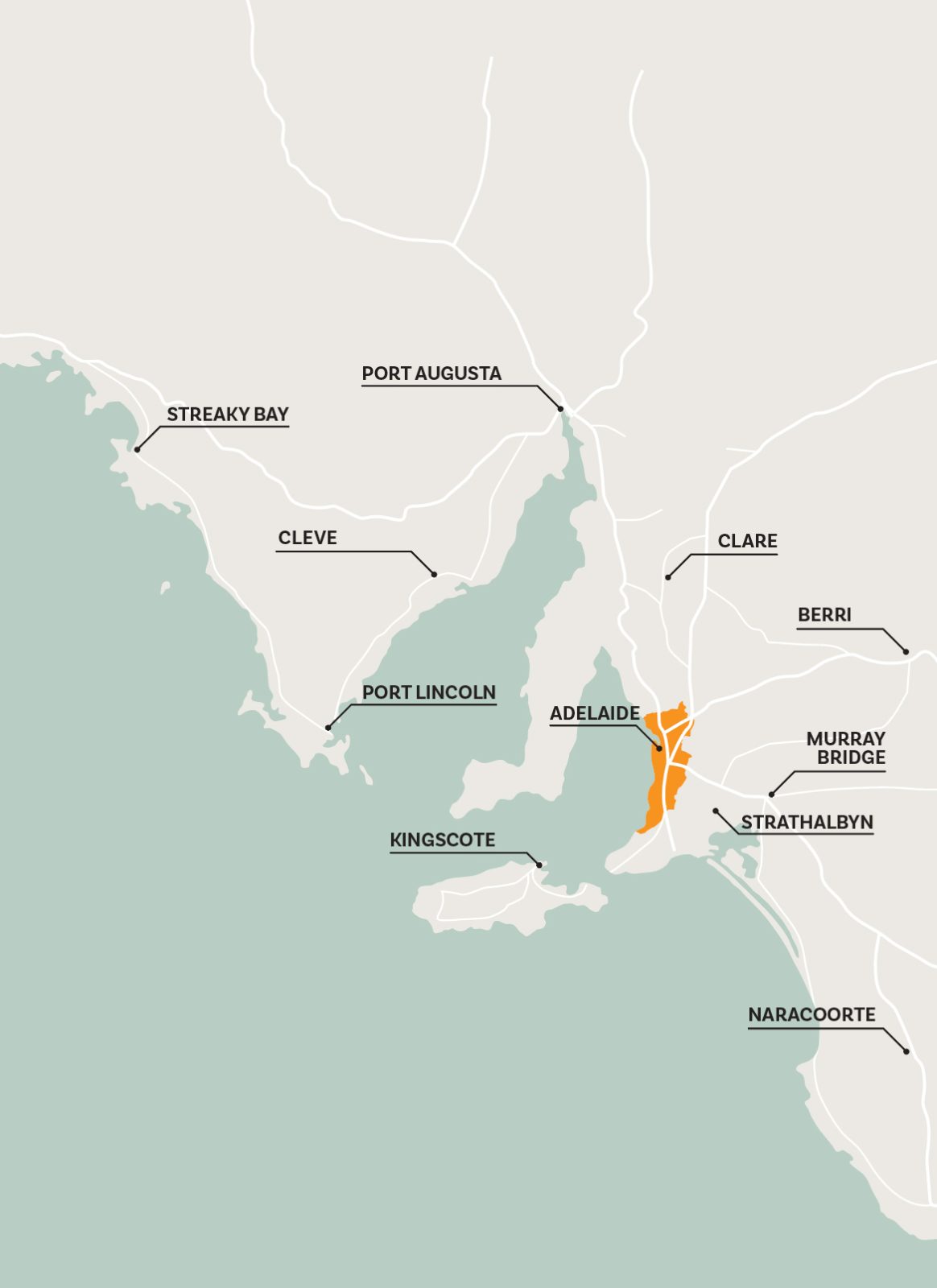
Regional consultations were carried out with a wide range of stakeholder groups including:
- Adelaide Botanic Gardens
- Ag Excellence Australia
- Angas Bremer Water Management
- Apiarists
- Australian Land Conservation Alliance
- Conservation Council SA
- Dairy SA
- Farmers
- Friends of Shorebirds
- Grain Producers SA
- Landscape SA Boards (9 Boards, 32 attendees)
- Livestock SA
- Local Government (26 councils, 31 attendees)
- Mallee Sustainable Farming
- Murray–Darling Basin Authority
- Parks and Wildlife (DEW)
- PIRSA/SARDI
- Primary Producers SA
- Regional Development Australia
- Renmark Irrigation Trust
- SA Dairy Farmers' Association
- Trees for Life
- University of Adelaide
- Wine industry
Key issues raised during regional consultation included:
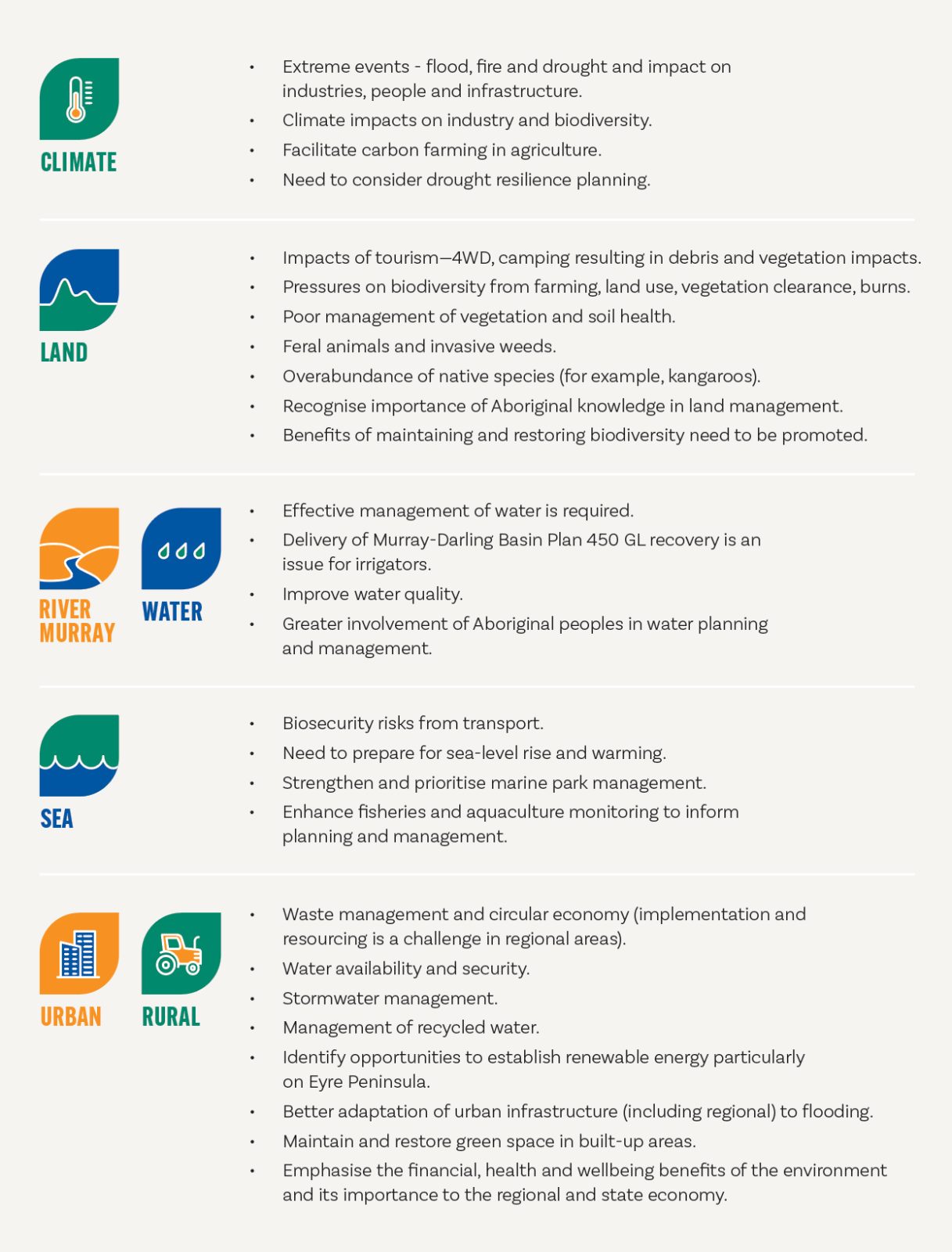
Aboriginal Peoples
The artwork by Ngarrindjeri artist Jordan Lovegrove represents the EPA and their dedication to safeguarding the environment and reporting on the state of the environment. It also highlights the vital role of Aboriginal peoples in land and sea management and the importance of monitoring the 'Health of Country.' The central meeting place symbolises the EPA, while background patterns reflect South Australia's landscapes, with green and ochre representing the land and blue for the sea and rivers.
The artwork underscores the deep connection between Aboriginal peoples and their homeland, their shared mission to protect the environment for future generations and the celebration of diverse Aboriginal communities working together for the wellbeing of South Australia.
Australia is home to the oldest continuing living culture in the entire world with Aboriginal and Torres Strait Island people caring for Country for at least 65,000 years. Being the oldest continuing culture in the world means Aboriginal people have a unique perspective on the integrated relationship between humans and the natural environment, and the importance and influence that the environment has on human health and wellbeing. Learning, understanding and embedding Aboriginal knowledge in future protection and restoration of Country is an important element of South Australia’s reconciliation journey.
For the first time, the SOER has included the views of Aboriginal peoples on How Healthy is Country and aims to better represent the role and opportunity for Aboriginal peoples in looking after Country. The EPA has commenced the journey of walking together with Aboriginal peoples in the development of the SOER and has met with:
- Dr Roger Thomas, the (then) Commissioner for Aboriginal Engagement
- Landscape Board general managers and Chairs to discuss opportunities to work with Landscape Boards in working together with Aboriginal peoples, given that the Statement of Commitment signed by the nine Boards overlaps with the objectives of the SOER
- the Aboriginal Engagement Committee who work with the Northern and Yorke Landscape Board. Committee members include a representative from the region’s 5 Nations – Nukunu, Narungga, Ngadjuri, Kaurna and Peramangk. They stated that the South Australian Government should aim for ‘a cohesive working partnership and relationship’ and that ‘Partnerships and relationships are very important’ as ‘it is not just about providing advice, information and recommendations’. In looking after Country ‘we need to share the driving and not drive with one of us in the back seat’. ‘It is important to look after land for wellbeing and culture. If our land is not well, we are not well1'. They also recommended that regional partnerships be established to help care for Country that include representatives from Aboriginal Nations, local government, Landscape Boards, DEW and the EPA
- members of the Alinytjara Wilurara Landscape Board who raised the issue of ‘accessibility of the SOER, for example, videos instead of text’ and that ‘internet access is problematic for some Aboriginal communities’. They also stated that ‘working with Aboriginal communities is needed’ and that ‘the SOER needs to strengthen the narrative about Aboriginal people's link to the land and their involvement in looking after Country and how they are achieving this’
- the Aboriginal Engagement Network from the SA Arid Lands Landscape Board
- representatives from Warpulai Kumangka (Kaurna strategic advisory group to Green Adelaide) who provided their views on the importance of people’s connection to Country and the link between the health of Country and the health of people. They stressed the importance of working together and caring for Country, and expressed their concern for the health of Country
- Aboriginal Rangers from the Nipapanha Community Aboriginal Corporation who manage Australia’s first Indigenous Protected Area at Nantawarrina. Their views were provided about their community and the importance of healthy country
- (and commissioned an) expert report from Associate Professor Steve Hemming and Professor Daryle Rigney who is a citizen of the Ngarrindjeri Nation. Both are part of the Indigenous Nations and Collaborative Futures Research Hub, Jumbunna Institute for Indigenous Education and Research, University of Technology Sydney.
All welcomed the opportunity of having more involvement in the development of the SOER, but reiterated that it would be important for the SOER to drive action especially by government. All groups stressed that the South Australian Government needed to work in partnership with Aboriginal people and that cultural knowledge needed to inform and be integrated into restoring and caring for Country. ‘When Country is healthy, we are healthy. Access to Country is required to learn about Country and understand Country and what it is telling us.’
1 Consent obtained from Ms. Pat Waria-Read, Ngadjuri Elder.
Community
The EPA undertook an independent review of the SOER after its completion in 2018. This review recommended the EPA enhance stakeholder engagement and improve its capacity to inform stakeholders of the state of the environment to drive change. In response, the EPA established a YourSAy page seeking community input on what they valued about South Australia’s environment and their thoughts on the key environmental issues facing South Australia. In addition, photos were requested that could be used in the SOER and environmental projects that were being undertaken.
A total of 165 responses to our survey were received from various South Australian regions and stakeholder groups.
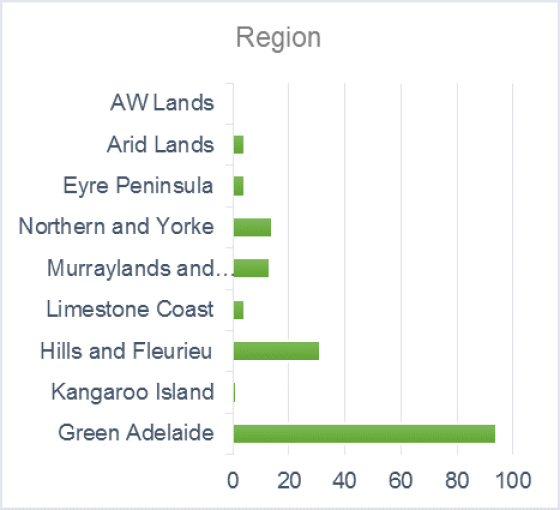
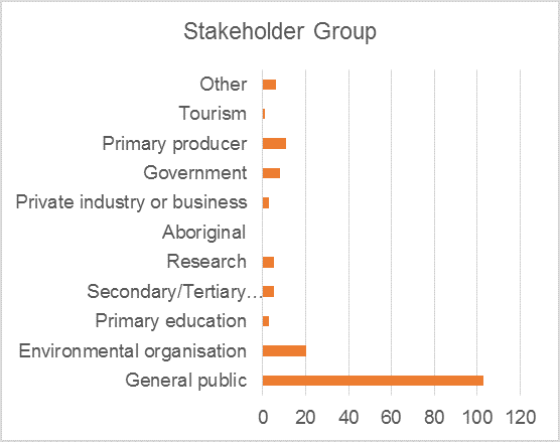
Responses were categorised into various topics depending on the information they provided in the survey. Individual people often provided input on more than one topic. Based on this information, it appeared that people valued a clean natural environment to support liveability and wellbeing, and a healthy ecosystem. Urban sprawl and development was the key environmental issue of concern to people who responded, followed by reduction in green space, and pest animals and weeds. Many responders also mentioned the lack of protection measures by government was of concern.
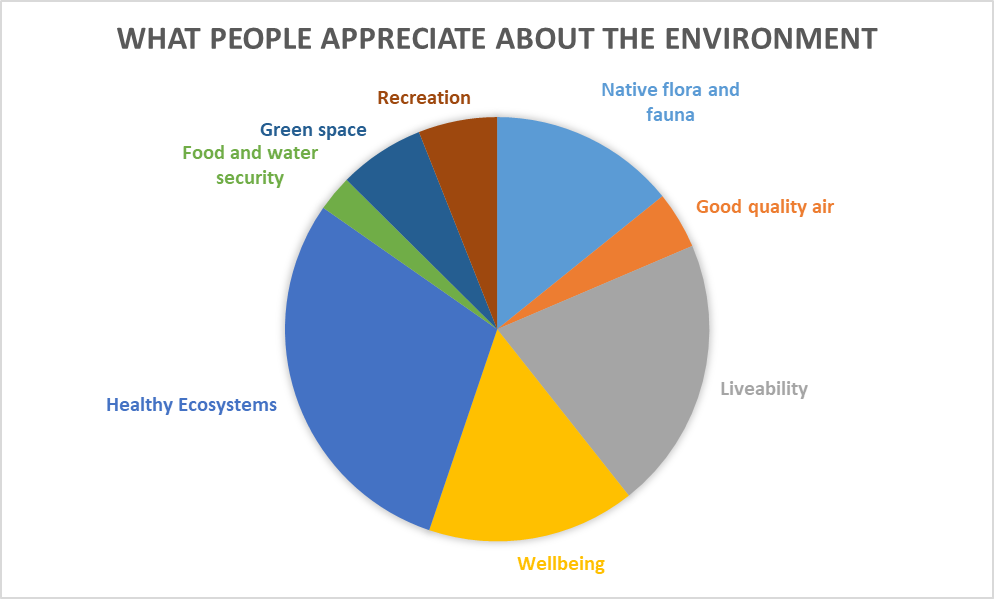
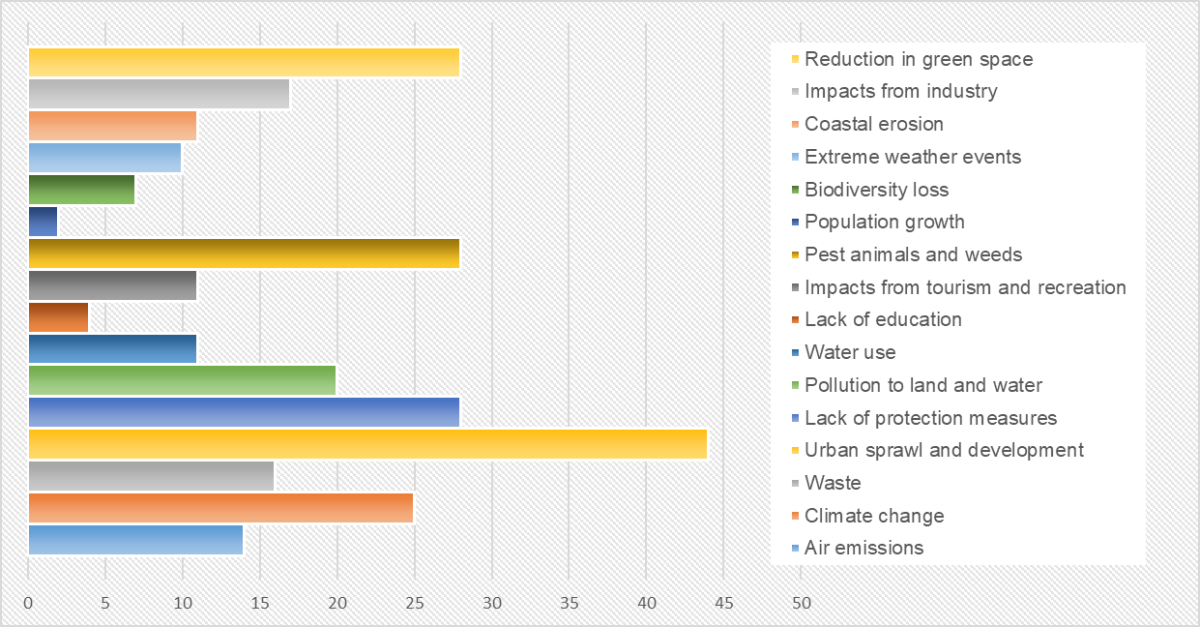
Assurance Group
An Assurance Group was established to support the production of the SOER and ensure its content provides information that is relevant to South Australians. The Assurance Group included representation from a wide range of stakeholders including various industry sectors, academics, government agencies, councils and conservation groups.
Members of the Assurance Group were responsible for:
- acting as a representative for their stakeholder group
- helping provide information that could be used in the SOER
- reviewing content that had been drafted by the EPA.
The group comprised:
- Alexandrina Council
- Association of Mining and Exploration Companies
- Australian Land Conservation Alliance
- Conservation Council SA
- Department of Energy and Mining (DEM)
- Department for Environment and Water (DEW)
- Department for Industry, Innovation and Science (DIIS)
- Environment Institute, University of Adelaide
- Green Industries South Australia (GISA)
- Health and Wellbeing
- Infrastructure SA
- Landcare Association of SA
- Landscape SA
- Legutus Group (regional LGAs)
- Livestock SA
- Local Government Association of SA (LGA)
- Nature Conservation Society of SA
- Primary Industries and Regions SA (PIRSA)
- Primary Producers SA (PPSA)
- SA Health
- SA Water
- South Australian Fire and Emergency Services Commission (SAFECOM)
- South Australian Tourism Commission
- University of SA.
Expert Papers
The SOER Project Board sought independent expert opinions on three key topics facing South Australia’s environment. The views expressed are that of the author and not necessarily those of the EPA or of the South Australian Government. Considering the significant nature of these issues, the SOER has provided a recommendation relating to each of these three topics to the South Australian Government for consideration.
Biodiversity and Climate Change
Author: Professor Hugh Possingham, The University of Queensland and Biodiversity Council.
- This report notes that South Australia’s biodiversity is declining rapidly. An overview of the key threats to biodiversity is provided along with actions that could be implemented to mitigate biodiversity decline.
- The lack of investment and challenges in collecting monitoring data to inform trends in biodiversity was also highlighted in the report. It was recognised that, as of September 2023, South Australia has no explicit goals and targets for biodiversity.
- It was stated that, to address biodiversity decline, monitoring and research needed to be more focused, cost-effective, long term and integrated with partners nationally and globally, and that South Australia would need to take a far more radical approach to many conservation interventions in the context of a rapidly changing climate.
The report highlights the challenges facing South Australia’s biodiversity under a changing climate, the positive actions required to secure its future, and current examples of relevant actions
Addressing Environmental Risk from Plastics
Author: Mr Vaughan Levitzke PSM, Circular Economy Advisory
The paper documents and compares:
- the whole-of-life-cycle environmental risks from plastic, considering pollution sources at different life-cycle stages, plastic types, pollution volumes and impacts
- the approaches being used in comparable jurisdictions to address these risks
- suggest priority measures that South Australia could consider to strengthen our current and planned responses.
The paper provides information about plastics, including the quantities involved, their uses and the problems they cause. It discusses what is currently happening internationally, nationally and in South Australia to address the issues caused by plastics. The author shares a proposed framework to address plastics that is being developed internationally, identifies investment opportunities for Australian governments and the private sector and makes recommendations on what South Australia could do better or differently.
Our beloved plastic is after just 70 years become dominant in the environment, it has come back to haunt us in ways we had never imagined.
Engaging and Involving Aboriginal Peoples
Authors: Associate Professor Steve Hemming and Professor Daryle Rigney, Jumbunna Research, Jumbunna Institute for Indigenous Education and Research, University of Technology Sydney.
- The report provides examples of guiding statements from global, national and local sources as a pathway to highlight the importance of, and guide suggestions for, the development of a South Australian framework for the inclusion of First Nation values, knowledge and expertise in SOER reporting and ongoing environmental management.
- The authors advise that South Australia requires the identification of the fundamental absence of a formal, structured and resourced process for ensuring respectful inclusion of First Nation values, knowledge and expertise and propose that a state-level structural response is required to improve alignment between South Australian SOER and Commonwealth and international monitoring and reporting regimes. Several proposals for action have been provided by the authors to achieve these outcomes.
How could we more effectively engage and actively involve First Nations Peoples in monitoring, reporting on and caring for Country and what benefits could this achieve?
